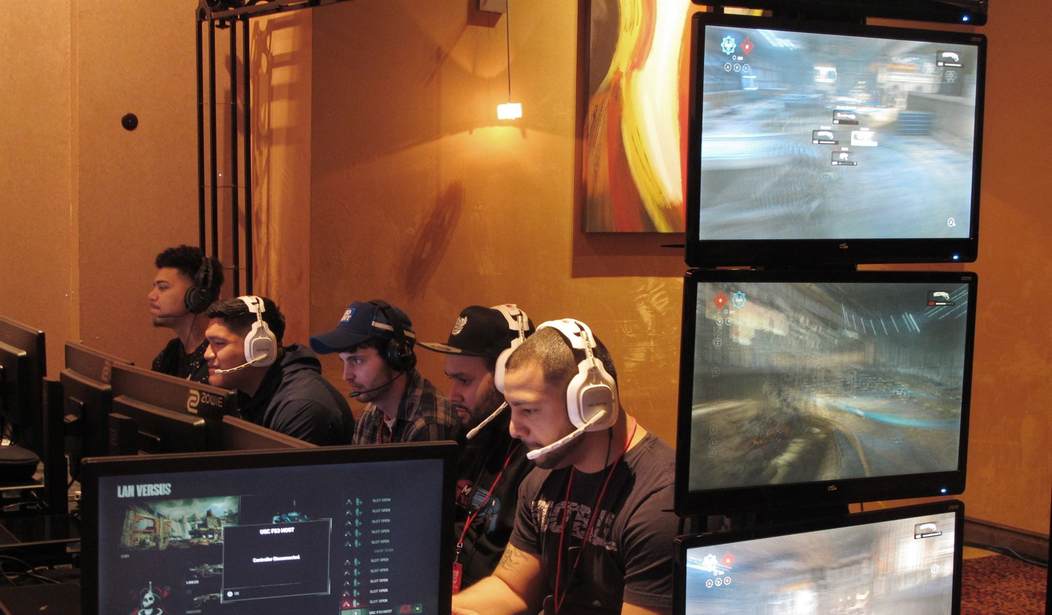Video games and guns have a fairly long history with one another. From the early days of video games, guns have played a role, but as the games got more realistic, so to have the guns.
These days, it’s not unusual to see your favorite firearms–possibly even your daily carry weapon–as a weapon used in your favorite game. In fact, it’s often expected.
Once upon a time, the game industry licensed these designs by getting permission. These days, they don’t. So far, it appears that the courts haven’t ruled this as a problem, and gun companies likely aren’t pushing it because they sell more than a few firearms to people who buy them because of seeing them in their games.
However, a video game company is alleging that a firearm company has stolen designs from them.
The developers at indie studio Ward B really like designing fictional guns. The small team has been posting highly detailed weapon designs for its in-development game, Oceanic, since 2019. Crucial to the team’s work – and the small following around Oceanic’s development – is that while the weapons in question are meant to reflect tech created 200 years in the future, they must look like they could feasibly work in reality.
“We’re looking to have them very, very scientifically explainable,” CEO Marcellino Sauceda tells me. “There’s actually a few weapons we ended up scrapping and not putting in the game because there were design flaws that we weren’t too happy with in the end.”
In fact, Ward B’s commitment to believability was so strong that, in early 2020, Maxim Kuzin arrived in Sauceda’s inbox. A contractor for Russia’s largest weapons manufacturer, Kalashnikov Concern, Kuzin asked for permission to turn one of Ward B’s fictional weapons into a real-life shotgun. For Sauceda, it wouldn’t just be recognition of his team’s hard work, it would be a genuine milestone for the industry – to his knowledge, it would mark the first time a video game gun had been turned into a physical, mass-market model.
“It’s huge. There’s no game studio today that collaborated with a weapon manufacturer to make a fully operational firearm. And we would have been the OGs of that.” Sauceda stops for a second. “But they’ve completely ripped that opportunity from us.”
Sauceda never gave his formal permission for the gun to be adapted for real life – and yet Kalashnikov Concern subsequently announced a weapon kit that bears what Sauceda sees as a striking resemblance to one of Ward B’s own creations. The company now alleges that Kalashnikov Concern not only stole its weapon design but, in a bizarre twist, subsequently granted an entirely separate video game the rights to use it.
In particular, they allege that Kalashnikov Concerns’ MP-155 Ultima is actually based on the Mastadon, a gun they designed for their game.
To be fair, the similarities are pretty pronounced and, at least to me, fairly obvious. They’re not identical, but the similarities are definitely there.
And that’s an issue.
You see, while video games don’t have to license gun designs, it’s because the courts have ruled games as creative endeavors similar to movies. Gun companies don’t have to grant permission for guns to be used in movies and video games don’t either.
But that’s not reciprocal. You can’t take something from a movie and use it without permission, so you can’t take something from a game and use it without permission either.
As such, it sure looks Kalashnikov Concerns has crossed a line.
Kuzin claims the gun isn’t a copy and claims that the Russian Designers Association certified it was a unique design, even supposedly comparing it to Ward B’s Mastadon. Sauceda is unconvinced, and I think he has reason not to be.
The truth is, foreign companies rip off designs from American companies all the time. They usually don’t try to package them as unique works, but they would if they thought they could get away with it. In this case, the MP-155 Ultima is just different enough that they might well have figured they could.
The problem is whether Ward B’s copyright can be enforced in any meaningful way.
Ward B has opted not to pursue any legal challenge, mostly because Kalashnikov Concerns is based outside of the US, making such a challenge far more difficult. Then there’s the fact that a small indie game studio likely would lack the resource to take on Russia’s largest weapons manufacturer.
Which is a shame, because someone’s hard work should never be stolen. That includes intellectual property.








Join the conversation as a VIP Member